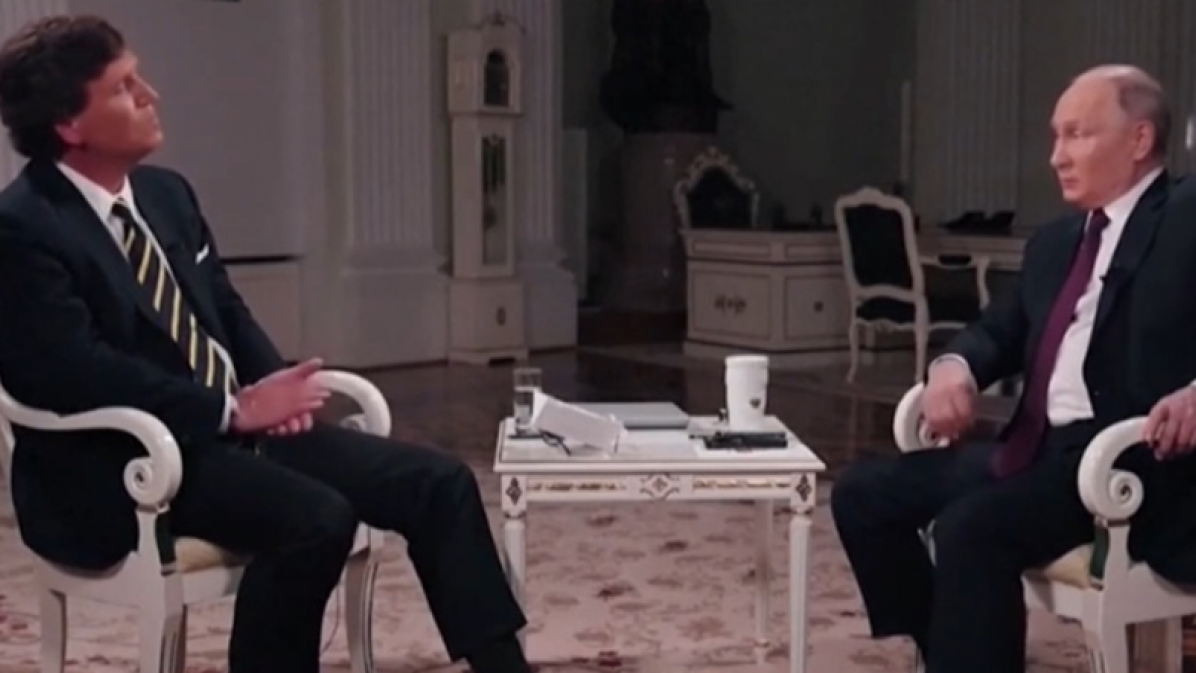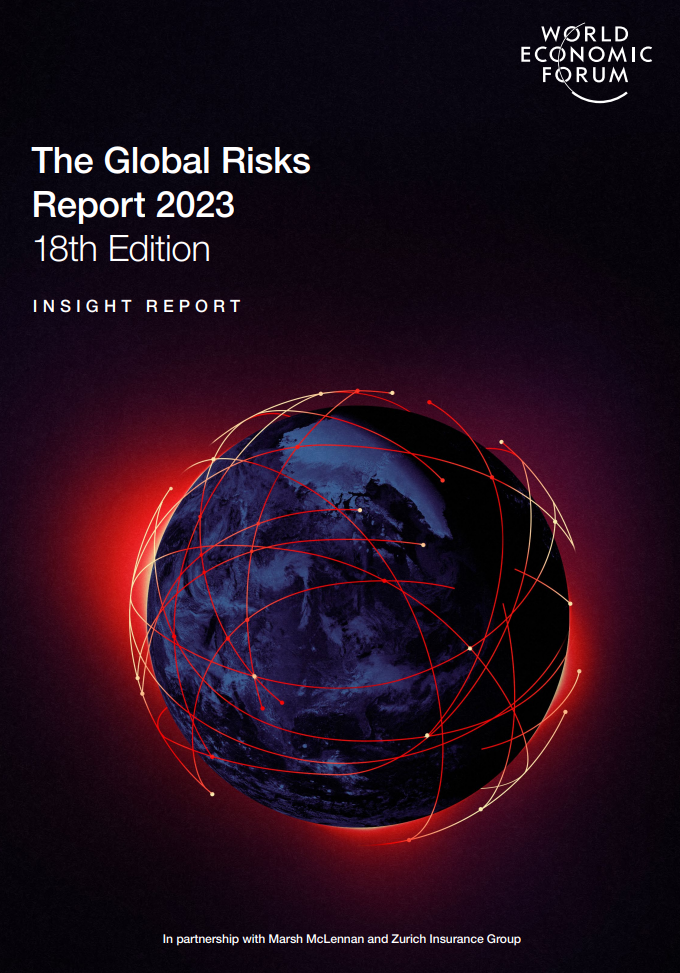Unthinkable Times: New Mind Muscle Needed
There is a starker and ever deepening trend. Ignoring unthinkables carries new peril. The mountain of awareness has begun to move. But leaders still need to challenge themselves relentlessly. They must do so ever more boldly.
"To think the unthinkable we now need to realise that the unthinkable is the new normal” Andrew Liveris, the former President and CEO of Dow Chemical told our Thinking the Unthinkable podcast.
Liveris is spot on. His radical blueprint for new leadership would ensure the status quo is remoulded at speed for the new disruption. “We have got to disrupt ourselves. We have got to change the narrative." See Leaders Must Disrupt Themselves and Reimagine Their Skills to Handle New Unthinkables (thinkunthink.org)
The penny (or cent), is finally beginning to drop. Just beginning! But at last. As Liveris told us: throw out the old toolbox. And don’t say we need to think “out of the box”. Why? There is no “box” any more.
So leaders must challenge themselves relentlessly. They must do it ever more boldly.
Build New Mind Muscle
We have to keep asking them: do you have the mind muscle to think and act differently? Could Russian tanks really appear one day on western streets where they have not been seen since 1991?
How many of you are prepared to break the conformist mould that secured you your job? How many of you will risk your credibility in order to be as right as you need to be?
The number is still far too few.
But to be battle prepared – for battle it is – you as leaders need to be shaken from your conformity, complacency and narrow thinking. The growing evidence is that risk taking will be rewarded. So will being both bold and brave.
Sweden was shaken in early January when two top public figures broke conventions of discretion to warn their once neutral country to prepare for war. Yes war!
The truly shocking announcements stunned and unnerved Swedes. The warning was unthinkable and unpalatable. But it was real and official. And it was justified.
"Expect Every Scenario"
Then in early February. Poland’s Defence Minister Władysław Kosiniak-Kamysz gave a similar warning about unthinkables confronting his country. "I expect every scenario, and take the worst ones most seriously. That is the task of a defence minister in the situation we find ourselves in today."
So the unthinkable is now plausible. Kosniak-Kamysz said he had "not just said these words out of the blue." He had weighed them carefully before going public and alarming huge numbers who in normal times would not even have begun to believe him.
Then came Denmark’s Defence Minister. Troels Lund Poulsen warned his country that it must speed up military investments after new intelligence indicates that Russia is re-arming faster than expected. Moscow “could attack a NATO country within three to five years” was his chilling message. Importantly he added “that was not NATO's assessment in 2023. This is new knowledge that is coming to the fore now."
In other words it was unthinkable last year. But it is thinkable now.
German Chancellor Olaf Scholz reinforced the new foreboding. Two days later, as he turned the first soil of a new ammunition plant, he warned “This is urgently necessary because the painful reality is that we do not live in times of peace,” he said. “We must move from manufacturing to mass production of armaments. Those who want peace must be able to successfully deter aggressors”.
Ignore Thinking That Got You Your Job
There is a lesson for all leaders here, whether political or corporate, however large or modest your organisation. What you have been used to, and what qualified you for your job, must no longer be assumed to be the most relevant.
A similar blunt warning came from General Sir Richard Shirreff, a former deputy commander of all NATO’s forces. “Now is the time to think the unthinkable” he warned at the end of January. The ever growing Russian threat must not be palmed away. Deterrence must be effective to prevent World War 3, with “Russia deterred and catastrophe averted”.

Unthinkables Must Be Palatable
The credibility of Putin’s comment to US right wing TV host Tucker Carlson [8 February] that a Russian invasion of the Baltic states, Poland and other NATO countries was “absolutely out of the question” seemed as hollow as the Russian president’s previous commitments.
A global war threatens all that we take for granted. The unthinkable must now be regarded as palatable.
I was not sure I believed this until I visited the former Soviet state of Lithuania in January. Now a full member of the EU and NATO, they were commemorating the resistance in 1991 to Moscow’s military efforts to crush their independence. The remains of giant concrete barricades still adorn the parliament building. I visited the former KGB prison – now a museum. A long line of interrogation cells. Execution chambers.

The experience was deeply chilling. It reminded me of too much from my own on-the-road experiences that I assumed I could forget.
Having been held in several similar Soviet bloc detention facilities in the 1980’s during my work reporting from Moscow’s crumbling empire and satellite states, the memories and horrors returned. I had years of similar smells, sights and experiences. Suddenly I could imagine it happening again.
Inside the Lithuanian parliament a jolly and swarthy self-styled paramilitary veteran greeted me warmly. “What about Russia repeating 1991?” I asked him. He told me he had just bought a semi-automatic weapon with 2000 bullets “to kill Russians”.
Then I met a smart, young Scandi-looking man aged about 25 with a sharply pressed white shirt. He was on night duty serving behind the hotel reception. What is the outlook, I asked him.? He would soon start military and weapons training, he replied. His generation could not believe he was saying this.
Warnings Have not Changed
The new Russian threat is not unthinkable. It is that real, as TTU warned just after the start of the Ukraine war in February 2022.
Two weeks into his Ukraine operation, I wrote: “Under Putin’s plan . . . his 20 years of chilling, single minded planning and determination have put in place ways for him to multiply, escalate and broaden the evil he has already inflicted on Ukraine. We and the way we live could all be Putin’s targets next if he is provoked to broaden his actions beyond Ukraine. This prospect is real and finely balanced on a knife edge”. Putin’s plan: you will be next (thinkunthink.org)
In the Lithuanian capital Vilnius I was 200 km from Russia’s highly militarised Baltic enclave of Kaliningrad. The following week Putin was there “inspecting Russia’s preparations” of chemical, biological, radiological and nuclear ordnance. For what, we all had to ask ourselves?
General Shirreff’s “unthinkable” warning had been unexpected and shrill. So was a parallel alert from the head of the UK Army, General Sir Patrick Sanders. Many analysts, commentators and loyalists immediately misconstrued his words. They read his warning that the UK is desperately short of manpower, equipment, and ammunition to fight an existential war as an appeal for re-introducing conscription.
It was not. Unspeakable? Unpalatable. Yes. It was an increasingly realistic assessment of how ill-prepared we are for the unthinkables we face. Now almost daily, allies confirm the growing scale of vulnerability, with national ammunition stocks almost “empty”.
Long List of Thinkables
Time and again, shockingly unexpected and inconceivable possibilities are now routinely being labelled as “unthinkable”. This applies to the intensifying Russian and Chinese threats to regional and global peace. So too for the potentially catastrophic upheaval in the Middle East due to Israel’s failure to believe the unpalatable evidence of Hamas’s murderous intent on 7 October.
Then there are the deepening climate, biodiversity and nature emergencies that scientists warn are existential threats to human survival on planet earth. Reality is much worse than most scientists predicted even a year or two previously.
It may be unthinkable. But it is no exaggeration, as confirmed by the deluges of wind and rain currently seizing up Los Angeles and devastating much of California. Or the sizzling 40°+ temperatures and resulting fires which brought significant death and destruction to central Chile.
The patterns are clear. There are many more unthinkables to add to this list, like another pandemic or increasingly the re-election of Trump as US President. In Davos I saw and heard usually level-headed Democrats privately shake their heads in despair as they explained the ever higher odds for a Trump victory.
So you get the dark direction of travel. The stability and reasonableness our generation have taken for granted is well down the path to unravelling. There is no sign of a slowdown. The trend is speeding up.
Look at the reality and you will see why none of these are as unthinkable as you want them to be.
Stark Shift In What Looms
By the relatively benign standards we have become conditioned to in the last 20-30 years the options for what is looming stretch both imagination and logic. Hence the need for new mind muscle.
We no longer face years of control and consensus, which should be regarded as comforting freaks of history. Those years are behind us now. The stability we have long taken for granted is now unravelling, and far faster than anyone dared to imagine.

Marsh McLennan, the global experts in risk and resilience, have summarised five new unpallatables to confront. None gives any hope.
Firstly, democracy “is on the line”. Secondly, there is conflict “contagion” with “foundations laid for multidecadal hostility rather than closure and reconciliation”. Thirdly, the new “charge of AI” will leave governments struggling to “develop appropriate regulatory frameworks” with “scope for catastrophic and systemic errors and intrusive harms”.
And more broadly, fourthly, there is growing “economic fracture” with “tepid growth”. . . “pandemic overhangs, new shocks and the end of the peace dividend”.
Finally, fifthly, despite the growing evidence of a climate and nature emergency there is “climate crisis lethargy”. There is “back pedalling by some governments on decarbonisation obligations” and the “increasing attraction of ‘silver bullet’ solutions to solve for shortcomings”.
Fast mounting evidence all around us explains why these five alerts are – indeed – inevitable. So they must not be viewed as either a shock or surprise. They must be considered super actively and planned for, as the Polish Defence Minister confirmed.
If ultimately the plans to embrace and combat unthinkables are never needed, then we should all shout ‘great!’ But that is not the way the playbook is heading. Quite the opposite.
No Reasons for Surprise
This rough new reality dawned ten years ago. But few wanted to even note it, let alone detail the implications for all of us.
None of this was a surprise to us here at Thinking the Unthinkable. Yet as we identified unthinkables and their likely impact we were too frequently asked and challenged : what on earth are you smoking?
For leaders there is the new imperative to think the unthinkable. But for almost all of them it is a struggle.
We need to recall what President Kennedy was urged to do in October 1962 when told the Soviets were preparing to use nuclear tipped torpedoes to break the US blockade of Cuba. Old think was inappropriate. “You must think differently, Mr President”.
He had to think the unthinkable as we must all do now.
